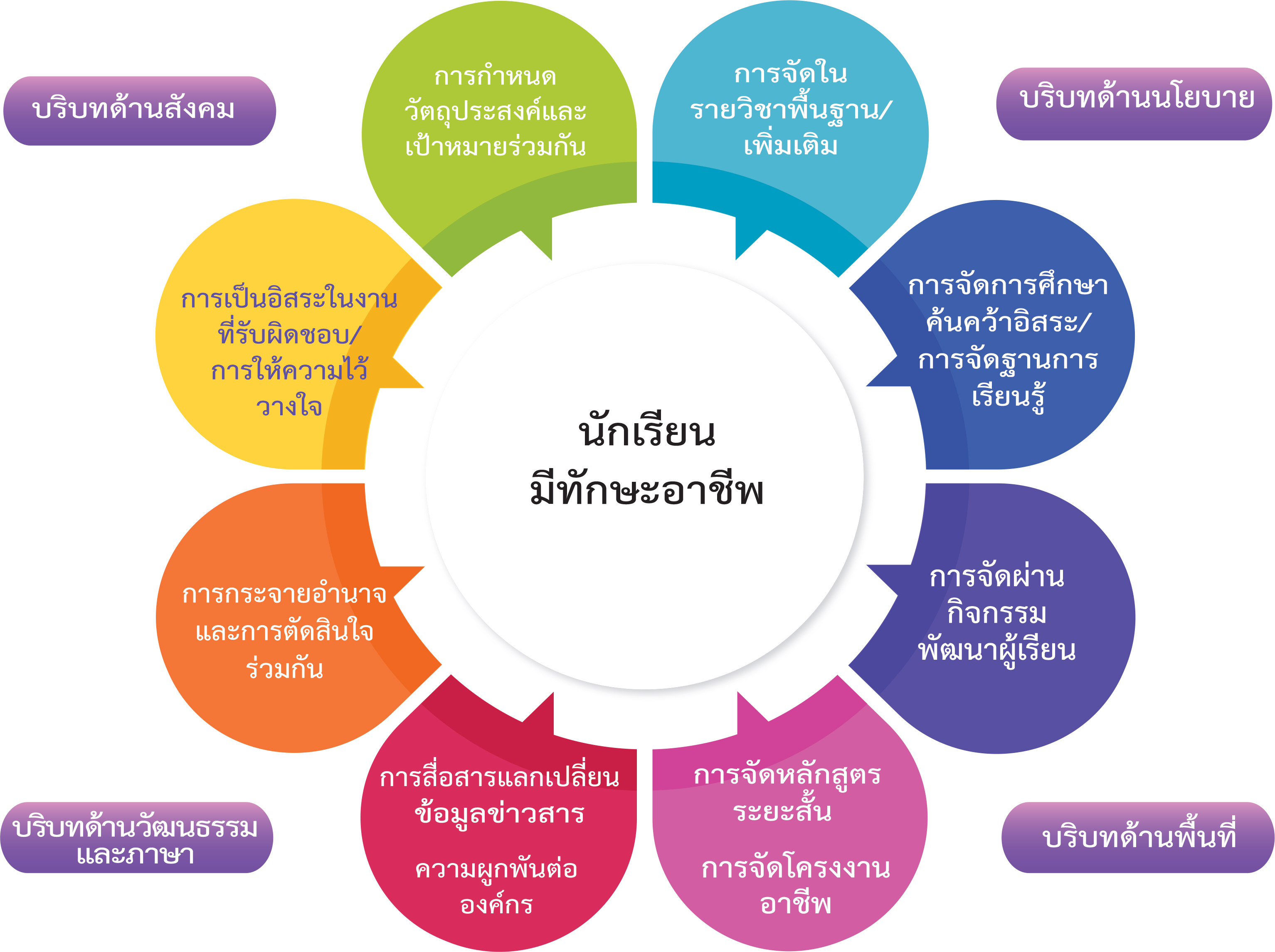Participatory Management Affecting Instructional Management to Develop Student’s Career Skills in Pondok Institutions Under the Office of the Private Education Commission in the 3 Southern Border Provinces
Keywords:
Participatory Management, Instructional Management to Develop Career Skills, Pondok Institutions, Southern Border ProvincesAbstract
This research aimed to: 1) study participative management in pondok educational institutions, 2) examine teaching management for students’ vocational skill development, 3) analyze the relationship between participative management and teaching management for students’ vocational skill development, and 4) evaluate the impact of participative management on teaching management for students’ vocational skill development. This survey research involved 406 school administrators and teachers, selected through proportional stratified random sampling based on the provinces where the institutions are located, followed by simple random sampling. The research instrument was a questionnaire with reliability coefficients of .91 and .92. Statistical analyses included mean, standard deviation, Pearson's correlation coefficient, and simple regression analysis.
The research findings were as follows:
1. Participative management in pondok educational institutions was rated at a high level overall and across all aspects ( = 4.37, S.D. = 0.11). The aspects ranked from highest to lowest were: organizational commitment, trust, communication and information exchange, decentralization and joint decision-making, autonomy in responsibilities, and setting shared objectives and goals.
2. Teaching management for students’ vocational skill development was also rated at a high level overall and across all aspects ( = 4.38, S.D. = 0.08). The aspects ranked from highest to lowest were: enhancing vocational skills through short-term courses, developing vocational skills through learning stations, and fostering vocational skills through project-based learning.
3. Participative management had a strong positive correlation with teaching management for students’ vocational skill development (r = .832).
4. Participative management significantly influenced teaching management for students’ vocational skill development at the .01 level of statistical significance and could predict 73.30% of the variance in teaching management for vocational skill development.
References
กระทรวงศึกษาธิการ. (2561). แนวทางการเสริมทักษะและสร้างเสริมประสบการณ์อาชีพให้กับนักเรียน. กรุงเทพฯ: สำนักวิชาการและมาตรฐานการศึกษา.
ชัยอานนท์ แก้วเงิน. (2563). ความสัมพันธ์ระหว่างการบริหารแบบมีส่วนร่วมกับประสิทธิผลของสถานศึกษา สังกัดสำนักงานเขตพื้นที่การศึกษามัธยมศึกษา. (วิทยานิพนธ์ครุศาสตรมหาบัณฑิต). ปทุมธานี: มหาวิทยาลัยราชภัฏวไลยอลงกรณ์ในพระบรมราชูปถัมภ์.
ชูชาติ พ่วงสมจิตร์. (2564). หน่วยที่ 6 การวิจัยปฏิบัติการแบบมีส่วนร่วม. ใน ประมวลสาระชุดวิชาการวิจัยการบริหารการศึกษา หน่วยที่ 6-10. (พิมพ์ครั้งที่ 8). นนทบุรี: สาขาวิชาศึกษาศาสตร์ มหาวิทยาลัยสุโขทัยธรรมาธิราช.
สายเพ็ญ บุญทองแก้ว. (2563). การพัฒนารูปแบบการบริหารสถานศึกษาเพื่อพัฒนาทักษะอาชีพสำหรับนักเรียนในโรงเรียน สังกัดสำนักงานเขตพื้นที่การศึกษาประถมศึกษาสุราษฎร์ธานี เขต 2. (วิทยานิพนธ์ครุศาสตรมหาบัณฑิต). สุราษฎร์ธานี: มหาวิทยาลัยราชภัฎสุราษฎร์ธานี.
สำนักงานคณะกรรมการการศึกษาขั้นพื้นฐาน. (2561). หลักสูตรแกนกลางการศึกษา พุทธศักราช 2551. กรุงเทพฯ: ชุมชนสหกรณ์การเกษตรแห่งประเทศไทย จำกัด.
สุริยา หะยีเหย็บ. (2564). สภาพปัญหา ความคาดหวังและแนวทางการพัฒนาการศึกษาสถาบันศึกษาปอเนาะ สังกัดสำนักงานคณะกรรมการการส่งเสริมการศึกษาเอกชน จังหวัดสตูล. วารสารอัล-ฮิกมะฮฺ มหาวิทยาลัยฟาฏอนี, 11(22), 219-233.
อภิชพัฒ เพชรพรรณ. (2560). ความสัมพันธ์ระหว่างการบริหารแบบมีส่วนร่วมกับการบริหารงานวิชาการของโรงเรียนประถมศึกษา สังกัดสำนักงานเขตพื้นที่การศึกษาประถมศึกษาตราด. (วิทยานิพนธ์การศึกษามหาบัณฑิต). ชลบุรี: มหาวิทยาลัยบูรพา.
อมรภัค ปิ่นกำลัง. (2562). การบริหารแบบมีส่วนร่วมของโรงเรียนรวม สังกัดสำนักงานเขตพื้นที่การศึกษาประถมศึกษาสมุทรสาคร. (วิทยานิพนธ์ครุศาสตรมหาบัณฑิต). นครปฐม: มหาวิทยาลัยศิลปากร.
Elliont, D. C. (1994). Collaborative decentralized management and perceptions of quality schooling outcome. Dissertation Abstracts International, 52(10), 23-25.
Jansen, A. N. B. (2013). Life skills that enable resilience: a profile of adolescents from a coloured community in Kimberley. Retrieved from http://hdl.handle.net/11660/1844
Kim, Y., & Lee, H. (2023). Investigating the effects of career education programs on high school students’ career development competencies in Korea. Sustainability, 15(18), 13970.
Wang, P., et al. (2023). The development of career planning scale for junior high school students based on cognitive information processing theory Frontiers in Psychology. Retrieved from https://doi.org/10.3389/fpsyg.2023.1106624






